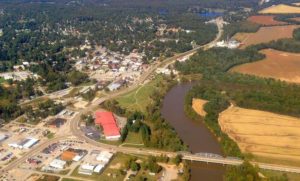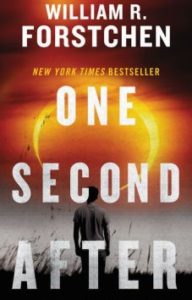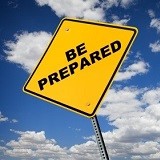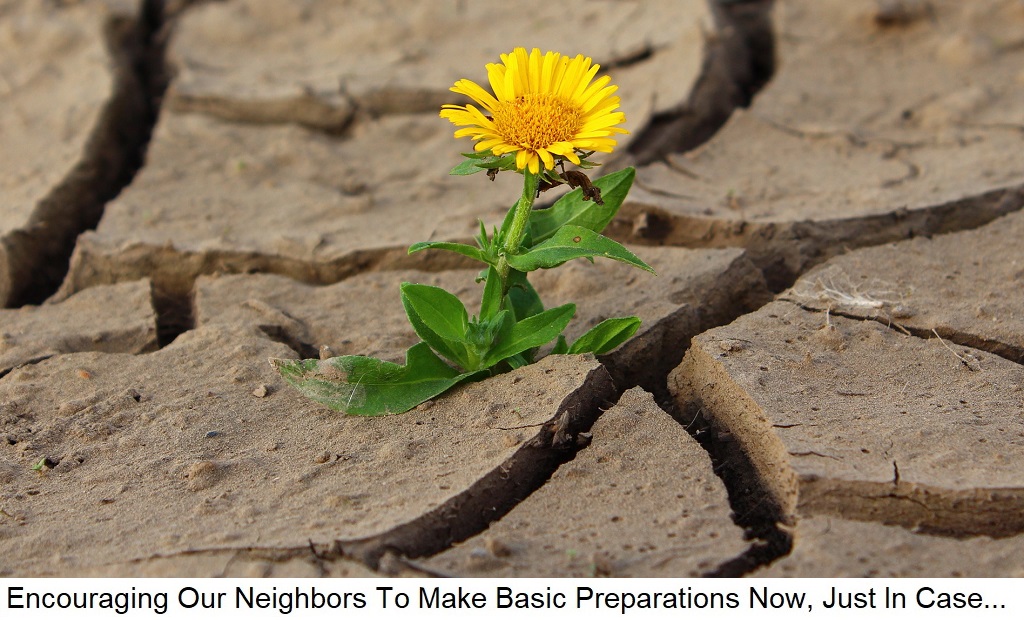Due to the current world situation, with unstable leadership in overseas, we’ve developed a whole new section on surviving radioactive fallout in a rural location like Randolph County, Arkansas. read more
“I never thought it would happen here.”
“I never thought it would happen to me.”
In the last few years, how many times have we heard these words coming from people just like we are?
Odds are, your house will never burn. But most of us buy fire insurance.
Odds are, you’ll never be sued by someone injured on your property, but most of us buy property liability insurance.
But the odds are increasing daily that a fairly simple terrorist attack, via cyber attacks and/or physical attacks on a few key points around the country, will take down our nation-wide electrical grid, and perhaps “fry” all the electronics in the country, from our computers to the microchips controlling our cars and airplanes, with things not returning to normal for months or even years. Such an attack could severely cripple the USA, with a foreign power in effect winning a war against us in seconds.
What would be the human consequences of such a crippling attack? It will sound unbelievable, but the government estimate is that only 10% of the US population would survive a year after such an attack. We are just not prepared to feed and provide safe water to 300 million people without our current system of mechanized farming, processing, and delivery to the millions of people living in cities.
This 90% fatalities estimate was first presented to congress in 2008, and was confirmed in the report by the Commission to Assess the Threat to the United States from Electromagnet Pulse (EMP) Attack to the U.S. House of Representatives Committee on Homeland Security on October 12, 2017.
Regarding the accuracy of the estimate that up to 90% U.S. fatalities from an EMP attack, during a 2008 congressional hearing, Rep. Roscoe Bartlett asked if such high fatalities could really result. The response was:
We don’t have experience with losing the infrastructure in a country with 300 million people, most of whom don’t live in a way that provides for their own food and other needs. For guidance, we can look back to an era when people DID live like that. That would be—10 percent would be 30 million people, and that is probably the range where we could survive as a basically rural economy.
U.S. House of Representatives, Hearing, “Threat Posed By Electromagnetic Pulse (EMP) Attack” Committee on Armed Services (Washington, D.C.: July 10, 2008), p. 9.
So, in an instant we could find ourselves back in the Victorian Era, back in a rural economy relying on steam engines and horsepower from real horses, and few of us give it a thought or do a single thing to prepare for that. Does that make sense?

Insurance. In this case, self-insurance. You’re not paying a company to take care of you when disaster hits. It’s up to you, now. After an EMP attack, it’s too late to prepare. If you’re unprepared, you’ll probably be among the 90% who don’t survive long.
Our county makes emergency plans through the Randolph County Office of Emergency Management. They are responsible for county-wide disaster response and management, and if needed, the state and federal government can come help. Our city and county governments are uniquely positioned to buy, store, and protect stockpiles of emergency equipment and supplies. They should do more than they’re doing now in this respect.
But if we suffer an Electromagnetic Pulse (EMP) attack, or a similar huge event, even the government will be unable to help you, for months or, in an extreme event, even years. You need to be prepared to act on your own, or with the help of your neighbors, if no other help is coming. You are not becoming a preacher of gloom and doom if you prepare. You are just thinking ahead, just in case. Once prepared, you can almost sit back and stop worrying about it!
Unlike commercial insurance, with premiums that must be paid monthly for a lifetime, disaster preparation is mostly a one-time chore and a one-time expense. Once you’re prepared, you just monitor your preparedness occasionally, and otherwise go about your happy life.
Are we under-prepared, under-insured, as it were, because disaster preparation is too hard, or too expensive? Maybe that’s what people think, but no, it’s not the case, and we intend to prove it!
Most of us think it makes sense to buy fire and liability insurance for these things that will probably never happen to us. And it DOES make sense to buy insurance. So why doesn’t it make sense to prepare for something that’s fairly likely to happen eventually.
Most “preppers,” people who prepare for and think about disasters and how to survive them, most preppers prepare in secret. It makes sense to keep quiet about your personal preparations, so the un-prepared don’t come to you for help when disaster hits, a time when, even with your preparations, life is about to become much harder.
You’ve prepared for yourself, not your neighbors. Though you’d like to help, you are going to be busy taking care of your own household. Other folks are mostly on their own, at least for the first few months.
So why are we at Survival Pocahontas bringing this subject up publicly? Because it only makes sense:
- Your greatest threat during a major natural or man-made crisis will come from other people, the ones who did NOT prepare in advance. Those people may become desperate to find and try to take what they need, as they justify in their minds that it’s okay to take from others, to help themselves or their loved ones.
 Your greatest allies during a major natural or man-made crisis will come from other people too, the ones who DID prepare in advance. Those people are not a threat to you. They, your prepared neighbors, are the ones who will join with you to protect our community. There’s safety in numbers.
Your greatest allies during a major natural or man-made crisis will come from other people too, the ones who DID prepare in advance. Those people are not a threat to you. They, your prepared neighbors, are the ones who will join with you to protect our community. There’s safety in numbers.
So, the more of our neighbors who prepare now, the more likely we all are to survive a crisis. That’s what Survival Pocahontas is about: to encourage and help our neighbors to prepare now, so we don’t have insurmountable problems here should disaster strike.
Step one in preparing our community: read the New York Times best-selling novel One Second After as well as the book Nuclear War Survival Skills. The books are well researched and reasonable. By the end, you’ll understand what could happen here, and why we need to prepare now.
Note: The success of One Second After led the author to produce two sequels to the story.
You will benefit from reading them, also:
One Year After and The Final Day.

